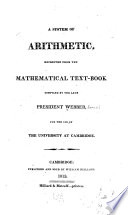 | Samuel Webber - Arithmetic - 1812 - 260 pages
...terms. 4. The common difference. 5. The sum of all the terms. PR0BLEM 1. Tke first term, the last term, and the number of terms being given, to find the sum of all the terms. RULE.* / Multiply the sum of the extremes by the number of terms, ami half the product... | |
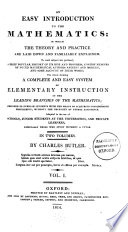 | Charles Butler - Mathematics - 1814 - 540 pages
...be found, as is shewn by the rules and examples following. 289. The least term, the greatest term, and the number of terms, being given, to find the sum of all the terms. RULE. Add the least and greatest terms together, multiply the sum by half the number... | |
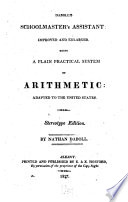 | Nathan Daboll - Arithmetic - 1817 - 252 pages
...terms of the progression ; the first u.,d last terms of which are cal,ed The first term, the last term, and the number of terms being given, to find the sum of all the terms. *A series in progression includes Jive parts, rz'z. the first term, last term, number... | |
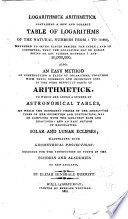 | Arithmetic - 1818 - 264 pages
...terms. 4. The comtnpn difference. 5. The sum of all the terms. PROBLEM I. The first term, the last term, and the number of terms being given, to find the sum of all the terms. RULE. Multiply the sum of the extremes by the number of terms,," and half the product... | |
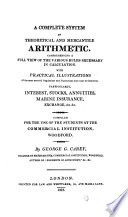 | George G. Carey - Arithmetic - 1818 - 602 pages
...three of face being given, the other two may l»e foiled. st: L THE LEAST TERM, THE GREATEST TERM, AND THE NUMBER OF TERMS BEING GIVEN, TO FIND THE SUM OF ALL THE TERMS. RULE. Multiply the sum *f tbe greatest a*4 least terns by half the number of tersw,... | |
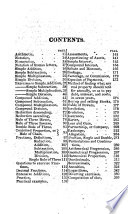 | James Maginness - Arithmetic - 1821 - 378 pages
...common difference? By formula 1, per table, 3JL=3 = 2. Ans. PROBLEM 2. The first term, the last term, and the number of terms, being given, to find the sum of all the terms. The extremes of an arithmetical series are 3 and 39, and the number of terms 19; required,... | |
 | Daniel Adams - Arithmetic - 1848 - 322 pages
...and 1205, and the common difference 8 ; what is the number of terms? Ans. 151. IT 219. The extremes and the number of terms being given, to find the sum of all the terms. 1. What is the amount of the ascending series, 3, 5, 7, 9, 11,13,15,17,19? SOLUTION.... | |
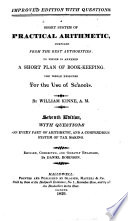 | William Kinne - 1829 - 246 pages
...4th. The common difference. 5th. The sum of all the terms. PROBLEM 1. The first term, the last term, and the number of terms being given, to find the sum of all the terms. HOLE. — Multiply the sum of the extremes by the number of terms, and half the product... | |
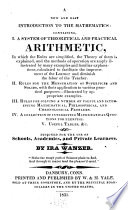 | Ira Wanzer - Arithmetic - 1831 - 408 pages
...them are given; as in the following PROBLEMS IN ARITHMETICAL PROGRESSION. PROBLEM I. — The extremes and the number of terms being given, to find the sum of all the termsofthe progression. RULE. — Multiply the sum of the extremes by the number of terms,... | |
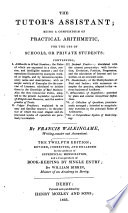 | Francis Walkingame - 1833 - 204 pages
...must be taken = the reciprocal of the fraction. Thus, when the ratio is J, r = |. Case 1. The less extreme, the ratio, and the number of terms, being given, to find the greater extreme (or any remote term) without producing all the intermediale terms. RULE. 1. When the... | |
| |